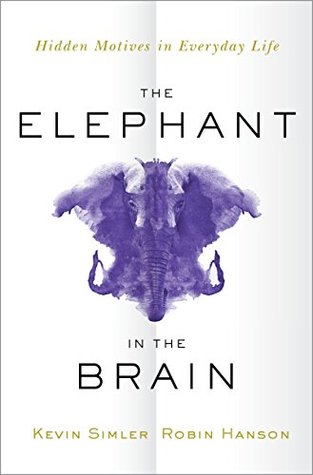More on this book
Community
Kindle Notes & Highlights
by
Kevin Simler
Read between
February 7 - June 10, 2018
Rather than manipulating others through cunning and intimidation, the courtier should win their affections freely, through charm, flattery, and valuable companionship.23 Both Machiavelli and Castiglione are right, in their own ways. The two strategies they outline are both useful for succeeding in politics.
Human groups develop norms because they (typically) benefit the majority of people in the group. Now, some norms, especially top-down laws, can be oppressive or extractive and an overall detriment to the societies that enforce them. But most norms—especially of the bottom-up, grassroots variety—are beneficial; they’re one of the main ways we suppress competition and promote cooperation.
Consider how awkward it is to answer certain questions by appealing to selfish motives. Why did you break up with your girlfriend? “I’m hoping to find someone better.” Why do you want to be a doctor? “It’s a prestigious job with great pay.” Why do you draw cartoons for the school paper? “I want people to like me.”
Their conclusion is that we, humans, must self-deceive. Those who refuse to play such mind games will be at a game-theoretic disadvantage relative to others who play along. Thus we are often wise to ignore seemingly critical information and to believe easily refuted falsehoods—and then to prominently advertise our distorted thinking—because these are winning moves. As Trivers puts it, “We deceive ourselves the better to deceive others.”21
To begin with, eye contact. Few behaviors convey the message “I’m attracted to you” as convincingly as a lingering come-hither stare. The more intense and prolonged the eye contact, the more it signals that both partners are interested in each other—and comfortable enough to advertise their interest, at least to each other.
In other words, listeners generally prefer speakers who can impress them wherever a conversation happens to lead, rather than speakers who steer conversations to specific topics where they already know what to say.
People who can speak with you about anything are more interesting than those who only lead the conversation to topics they know a lot about.
While it may not suit everyone, an ability to talk candidly about common human motives can signal some attractive qualities. People who are able to acknowledge uncomfortable truths and discuss them dispassionately can show a combination of honesty, intellectual ability, and perhaps even courage (or at least a thick skin). And those who can do so tactfully, without seeming to brag, accuse, or complain, may seem especially impressive. Not every community values these qualities to the same degree; in particular, many communities prioritize a commitment to orthodox views over impartial
...more
Why reading this book makes you smart :D (at least in circles of people with similar values - intellectual ability, truth seeking..)


